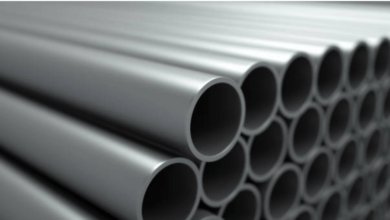How Veneers Can Enhance the Appearance of Small Teeth

Understanding Small Teeth and Their Impact
Small teeth can sometimes be more than just a cosmetic issue. They can actually affect your confidence and even how your teeth function. It’s not just about looks; it’s about how you feel and how well your teeth work together.
Defining Microdontia and Its Causes
Microdontia is the dental term for teeth that are smaller than average. It can affect a single tooth, several, or even all of them. Genetics often plays a big role; if your parents have smaller teeth, you’re more likely to have them too. Other causes can include:
- Certain genetic conditions
- Environmental factors during tooth development
- Some medications
- Nutritional deficiencies
It’s not always clear why someone has microdontia, but understanding the potential causes can help in figuring out the best way to address it.
Psychological Effects of Undersized Teeth
It might sound silly, but small teeth can really mess with your self-esteem. People might feel self-conscious about their smile, which can affect how they interact with others. It’s easy to feel like your teeth are the first thing people notice, and that can lead to:
- Reduced confidence in social situations
- Hesitation to smile or laugh openly
- Negative self-image
It’s important to remember that everyone’s different, and what one person considers a flaw, another might not even notice. But if small teeth are bothering you, it’s worth exploring options to improve your confidence.
Functional Challenges with Small Teeth
Beyond the way they look, small teeth can sometimes cause functional problems. If teeth aren’t the right size, it can affect your bite and how your teeth work together when you chew. This can lead to:
- Gaps between teeth
- Difficulty chewing certain foods
- Increased risk of tooth decay (because of the gaps)
- Potential for jaw pain or TMJ issues
Addressing these functional issues is just as important as dealing with the cosmetic concerns. Sometimes, fixing the size of the teeth can improve overall dental health.
The Transformative Power of Dental Veneers
Veneers aren’t just a cosmetic fix; they’re a real game-changer for people self-conscious about their small teeth. They can dramatically improve your smile and overall confidence. Let’s explore how these thin shells can make a big difference.
What Are Porcelain Veneers?
Porcelain veneers are super-thin layers of material, usually porcelain, that are bonded to the front surface of your teeth. Think of them as custom-made covers designed to improve the appearance of your teeth. They’re not like crowns, which cover the entire tooth; veneers are much less invasive. They’re stain-resistant and can last for many years with proper care. They are a popular choice for people looking to fix chips, cracks, discoloration, or, in our case, small teeth.
How Veneers Correct Tooth Size and Shape
Veneers can effectively make small teeth appear larger and more proportionate to the rest of your smile. The dentist Rancho Bernardo will carefully design the veneers to extend slightly beyond the original tooth size, creating a fuller, more balanced look. This is a precise process that involves taking impressions of your teeth and creating a model to ensure the veneers fit perfectly and look natural. It’s not just about adding size; it’s about creating the right shape and contour to complement your facial features.
Durability and Longevity of Veneer Solutions
When properly cared for, porcelain veneers can last for many years, often 10-15 years or even longer. Their durability depends on several factors, including:
- Oral hygiene practices
- Dietary habits
- Avoiding habits like teeth grinding or clenching
While veneers are strong, they’re not indestructible. It’s important to treat them with care and follow your dentist’s instructions for maintenance. Regular check-ups with your dentist Rancho Bernardo are also crucial for monitoring the condition of your veneers and addressing any potential issues early on.
Veneers are a great option for improving the appearance of small teeth, but they require a commitment to good oral hygiene and regular dental visits. With proper care, they can provide a long-lasting and beautiful smile transformation.
The Veneer Process for Small Teeth Enhancement
So, you’re thinking about getting veneers for small teeth? Great! Let’s walk through what the process actually looks like. It’s not as scary as it might seem, and knowing what to expect can really help ease any anxiety.
Initial Consultation with Your Dentist Rancho Bernardo
First things first, you’ll have a chat with your dentist. This isn’t just a quick hello; it’s a real conversation about your goals and whether veneers are the right solution. They’ll examine your teeth, discuss your expectations, and maybe even take some X-rays. This initial consultation is super important because it sets the stage for the whole process. They’ll also talk about the cost and payment options, so you’re not caught off guard later.
Custom Design and Preparation for Veneers
Next up is the design phase. Your dentist will take impressions of your teeth to create a model. This model is used to design veneers that fit perfectly and look natural. They might even show you a mock-up of what your teeth will look like with veneers. Once you’re happy with the design, your teeth will be prepped. This usually involves removing a small amount of enamel to make room for the veneers. Don’t worry, it’s not as bad as it sounds! You’ll likely get a local anesthetic to keep you comfortable.
Veneer Placement and Final Adjustments
Finally, the big day arrives – veneer placement! Your dentist will carefully bond the veneers to your teeth using a special adhesive. They’ll make sure everything lines up correctly and that you’re happy with the look and feel. After the veneers are in place, they’ll make any necessary adjustments to ensure a perfect fit. You might need a follow-up appointment to check everything is still good, but after that, you’re all set to show off your new smile!
The whole process, from consultation to final placement, can take a few weeks. It’s worth it, though, to get the smile you’ve always wanted. Just remember to follow your dentist’s instructions carefully to keep your veneers looking great for years to come.
Here’s a quick rundown of the steps:
- Initial Consultation
- Design and Preparation
- Veneer Placement
- Final Adjustments
Benefits of Veneers Beyond Size Correction
Achieving a Uniform and Balanced Smile
Veneers aren’t just about fixing small teeth; they’re about creating a smile that looks like it belongs together. They can correct minor misalignments and create a more symmetrical appearance. It’s like giving your smile a makeover, ensuring each tooth complements the others. I think that’s pretty cool, right?
Addressing Gaps and Irregularities
Got those annoying little gaps between your teeth? Or maybe some teeth are slightly crooked? Veneers can help with that too. They can close those gaps and straighten things out without needing braces. It’s a quicker, less invasive way to get a straighter-looking smile. I know a few people who went this route, and they’re super happy with the results.
Enhancing Tooth Brightness and Color
One of the best things about veneers is how they can instantly brighten your smile. They’re stain-resistant, so you don’t have to worry about coffee or wine ruining your pearly whites. Plus, you can choose the exact shade you want, giving you a smile that really pops. I’ve always wanted a brighter smile, so this is a big plus for me.
Veneers can really transform your smile in ways you might not expect. They address a range of cosmetic issues, from size and shape to color and alignment. It’s a pretty versatile solution for anyone looking to improve their smile’s appearance. I think it’s worth considering if you’re not happy with your teeth. I mean, who doesn’t want a great smile?
Caring for Your New Veneers
So, you’ve got your veneers! Awesome. Now comes the part where you keep them looking great. It’s not rocket science, but it does take some effort. Think of it like taking care of a nice car – a little maintenance goes a long way.
Maintaining Oral Hygiene with Veneers
Okay, first things first: brushing and flossing. You need to be on top of this. Brush at least twice a day with a soft-bristled toothbrush. Don’t go crazy with the pressure; gentle circles are the way to go. Floss daily, making sure to get between each veneer. This prevents plaque buildup, which can stain or damage your veneers (and your gums!). Mouthwash is also a good idea, but make sure it’s alcohol-free, as alcohol can weaken the bonding material over time. I use a fluoride rinse before bed, and it seems to help.
Dietary Considerations for Veneer Longevity
What you eat and drink matters. Things that stain your natural teeth will also stain your veneers, although veneers are more resistant. Coffee, tea, red wine, and berries are the usual suspects. Acidic foods can also be a problem, as they can erode the bonding. I try to drink coffee through a straw sometimes, which looks a little silly, but it helps. Also, be careful with hard foods like ice or nuts. Biting down too hard could chip or crack a veneer. I learned that the hard way when I tried to open a pistachio with my teeth. Don’t do that!
Regular Check-ups with Your Dentist Rancho Bernardo
Don’t skip your regular dental appointments! Your dentist needs to check the condition of your veneers and make sure everything is still in good shape. They can also give your teeth a professional cleaning, which will help keep your veneers looking their best. Plus, they can spot any potential problems early on, before they become big issues. I usually go every six months, but your dentist might recommend something different based on your specific needs. It’s worth it for the peace of mind, honestly.
Taking care of your veneers is an investment in your smile. With proper care and attention, they can last for many years, giving you a confident and beautiful smile. Just remember to brush, floss, watch what you eat, and see your dentist regularly. It’s a simple routine that makes a big difference.
Are Veneers the Right Choice for You?
So, you’ve read all about how veneers can fix up small teeth. But are they actually right for you? It’s a big question, and not one to take lightly. Let’s break it down.
Assessing Candidacy for Veneer Treatment
First off, not everyone is a perfect candidate. Your overall dental health is super important. If you’ve got gum disease or a ton of cavities, those need to be taken care of before even thinking about veneers. Also, if you grind your teeth a lot (bruxism), that can really damage veneers, so that’s something to consider. Basically, your mouth needs to be in pretty good shape to start with.
Discussing Alternatives to Veneers
Veneers aren’t the only game in town. There are other options, like:
- Dental Bonding: This is a less expensive way to fix minor chips or gaps. It doesn’t last as long as veneers, though.
- Crowns: These cover the entire tooth and are usually used when a tooth is really damaged. They’re more invasive than veneers.
- Orthodontics (Braces or Invisalign): If your small teeth are due to spacing issues, braces might be a better long-term solution.
It’s worth thinking about what you really want to achieve. Are you mainly concerned about the size of your teeth, or are there other things you’d like to fix, like color or alignment? Different treatments are better for different problems.
Making an Informed Decision with Your Dentist Rancho Bernardo
Ultimately, the best thing to do is talk to your dentist. They can look at your teeth, discuss your goals, and help you figure out the best plan. Don’t be afraid to ask questions! You want to be sure you’re making the right choice for your smile and your wallet. They can explain the pros and cons of each option, and give you a realistic idea of what to expect. Plus, they know your dental history, which is a big deal. They’re the experts, so listen to their advice!
Wrapping Things Up
So, if you’ve been looking at your small teeth and wishing they were, well, not so small, veneers might be just what you need. They can really make a big difference in how your smile looks. It’s a pretty straightforward way to get a more even and full smile. Think about it: a simple change that can make you feel a lot better about showing off your teeth. It’s worth checking out if you want to feel more confident when you smile.
Frequently Asked Questions
What are veneers?
Veneers are thin covers, usually made of porcelain, that a dentist puts on the front of your teeth. They change how your teeth look, making them bigger, brighter, or more even.
How long does it take to get veneers?
The process usually takes a few visits. First, you talk to your dentist. Then, they prepare your teeth and take molds. Finally, the veneers are put on. It’s not a super fast process, but it’s worth it.
Can veneers break easily?
Veneers are pretty strong, but they can chip or break if you bite on very hard things like ice or hard candies. It’s best to be careful with them.
Is getting veneers painful?
No, getting veneers shouldn’t hurt. Your dentist will make sure you’re comfortable during the process, often using numbing medicine. You might feel a little sensitive afterward, but it’s usually not painful.
How long do veneers last?
With good care, veneers can last a long time, often 10 to 15 years, or even more. It depends on how well you take care of them and your daily habits.
How do I take care of my veneers?
Taking care of veneers is like taking care of your natural teeth. You need to brush and floss every day and visit your dentist regularly for check-ups. Avoiding really hard foods can also help them last longer.





